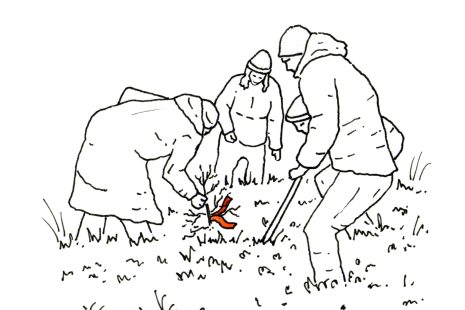Digital Opportunities Topic Advisory Group
Digital technology is a key enabler in achieving net zero targets. The evolution of digital technology has enabled more insights and in many cases data in real-time, than ever before. Key disruptive technologies such as artificial intelligence and augmented and virtual reality have enabled complex data to be automatically analysed and also visualised to extract knowledge, previously only available to the elite professionals. A key challenge is how to best exploit such disruptive technologies within land use, climate change, energy, and business development to offer new opportunities in developing a strong evidence base for informing new policies and understanding their implementation. The Digital Opportunities TEG targets these emerging areas for review with the aim to feed into the hub WPs for developing clear guidance and a consensus view on opportunities and ways forward. This group has the focus of synthesising knowledge via experimentation and reviews, and in sharing the opportunities and challenges in utilising digital technologies.
Key challenges:
- Foster understanding of capabilities and mitigated risks for stakeholders in employing Artificial Intelligence, decision-support tools and emergent digital opportunities.
- Horizon gazing on how multiple disruptive technologies (digital and others) can address net-zero challenges from effective land-use, e.g. how AI can be used to optimise novel energy storage, e.g. sand batteries for storage of energy (as heat) when on-farm wind or solar produces excessive levels above rates of live consumption.
- Establish the challenges that are barriers to adoption or implementing policy.
- Scope foot-hill projects on the journey to collecting evidence/data in mitigating barriers to adoption; barriers from landowners, farmers, policy makers.
- Establish/curate datasets to encourage the ‘AI/digital’ community and SMEs in engaging with LUNZ challenges.
- Develop training material on how to interpret data, how to use tools for analysis, visualisation; business intelligence; add to the Net Zero literacy developments.
- Identifying candidates for secondments across multidisciplinary areas (e.g. digital, policy).
Key activities:
- The Digital opportunities TEG will initiate planning for the LUNZ Metadata for Machines Workshop which will establish metadata schema. This is a key activity as it defines how data should be collected, sufficiently labelled, from sensor to survey data.
- Open data challenges will be hosted to engage with the academic and SME digital communities and raise LUNZ awareness; e.g. encourage ‘digital’ ECRs to pivot to LUNZ challenges and assist in developing capacity and capability.
- Speed-dating between stakeholders to assist in matching challenges with digital solutions; scoping foothill projects.
- Practical training modules on applying business intelligence; via lunch and learn or seminar series.
- Podcasts on demystifying digital technologies for stakeholders; e.g. AI, explainable AI and ethics.
- Encouraging hub members to support data gathering to establish, to an extent, a data lake; support anonymised open-data challenges.
- Develop evidence reviews, position papers and technology roadmaps for LUNZ.
Links and downloads

Professor Jim Harkin
Digital Opportunities
Related events
View all eventsNavigating Farm-Level Greenhouse Gas Assessments: Different perspectives, numbers and needs
By University of Gloucestershire Countryside and Community Research Institute
Related resources
View all resources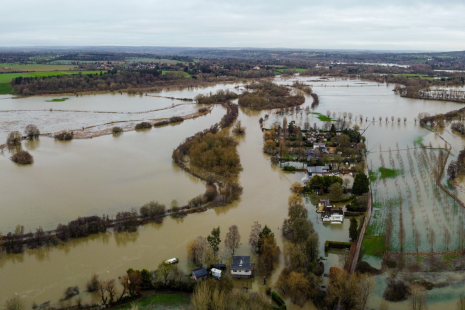
Soils and Flooding: Targeted Briefings for Policy and Practice

“I’ve seen his crops”: Making words work for good farmers
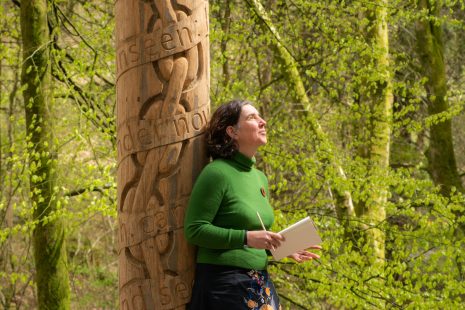
Bringing science, mathematical frameworks and policy to life through poetry

Soils and Flooding - expert panel explores the critical role of soil in mitigating flood risk

What do we mean by Net Zero literacy in the farming community?
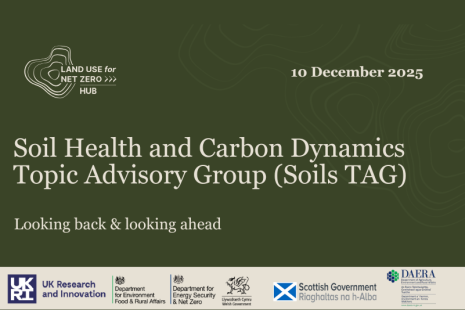
Community Update: In Conversation With the Soil TAG - December 2025

LUNZ Soft Skills Seminar: Artists in the Mix

COP30: A polarised summit that exposed the fault lines of global climate politics
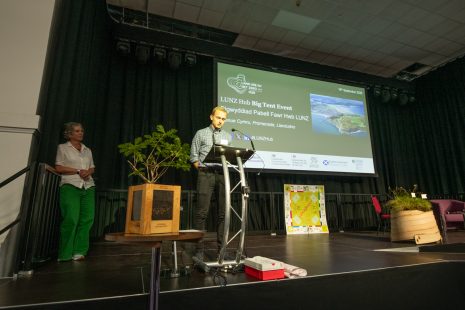
Llandudno closing poem - The Spaces in Between / Y gofodau rhwng

Enabling on the Ground Transition: Building Capacity for Net Zero Literacy in Farming and Rural Communities
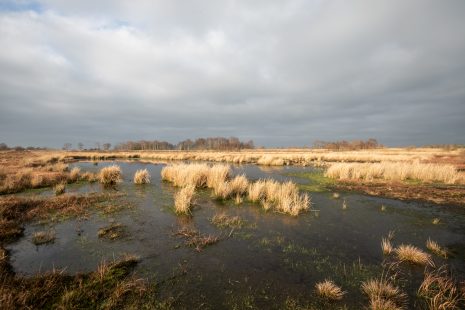
“Be with the bog” – peatlands, policy and poetry at the IUCN UK Peatland Programme Conference
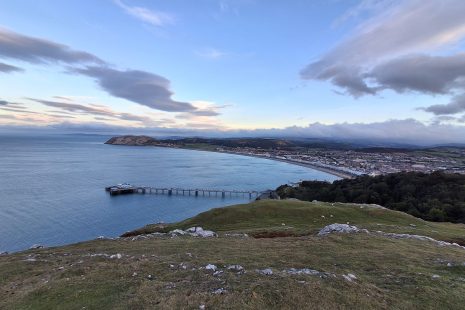
Big Tent Event - 'Ask the Expert' breakout sessions

LUNZ Exploratory workshop: Enabling transitions to net zero in land use in Wales – what works?

Rural Communities, Land Use Change and Net Zero
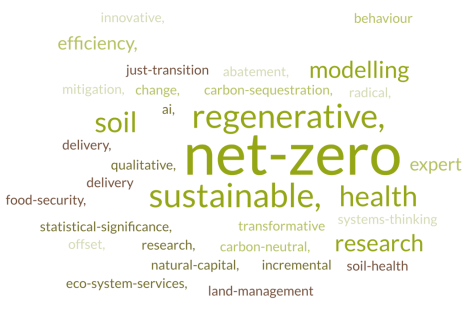
From Problems to Pathways… The Language of Land Use
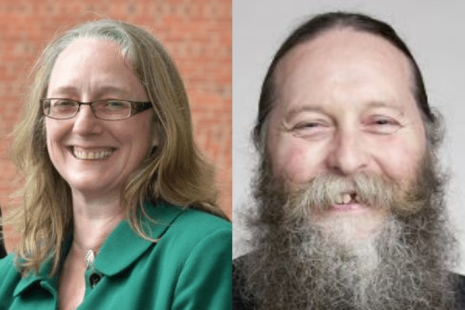
14 Things We Learned About the Science of Soil Carbon Sequestration with Helaina Black and Pete Smith

Regional variation in land use in England – implications for Land Use for Net Zero
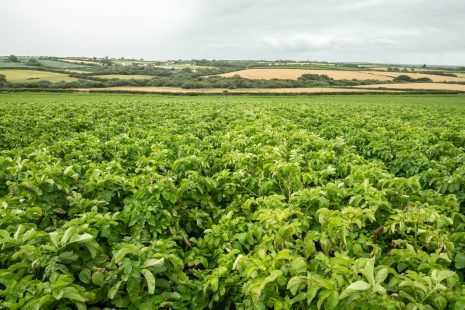
Land Use Decision Making in the UK & Ireland: What can countries learn from each other for a better future?
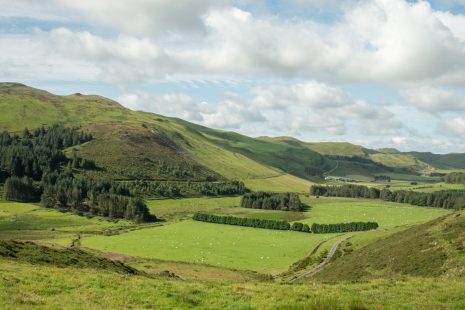
Midway Point Infographics
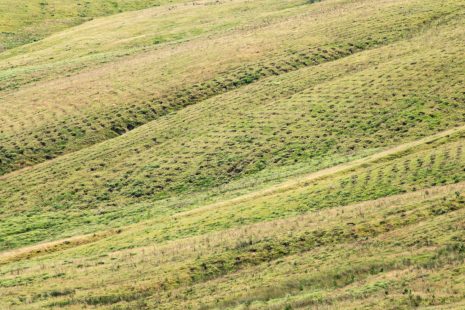
FFCC Land Use Workshops Report

Observations from Groundswell
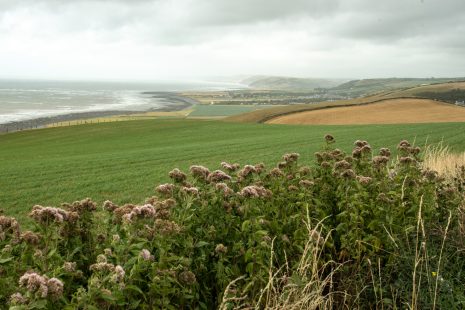
Nature Finance: Incentives and Barriers Workshop Report
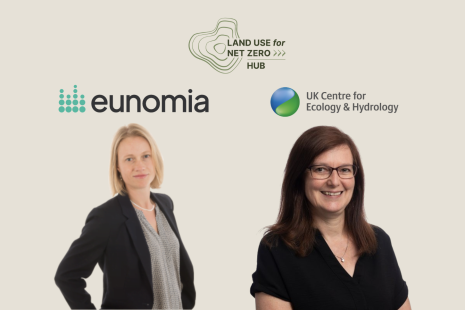
Talking Heads Series: Work Package 3 - Net Zero Futures Platform

Within Value Chain Mitigation: How organisations can reduce their Scope 3 GHG emissions via their agricultural supply chains
Related news
View all news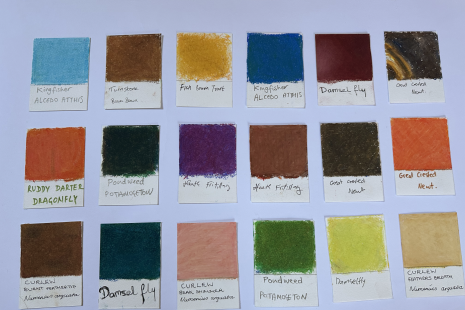
Creative Collaboration Placement Scheme: Daksha Patel at Rothamsted Research
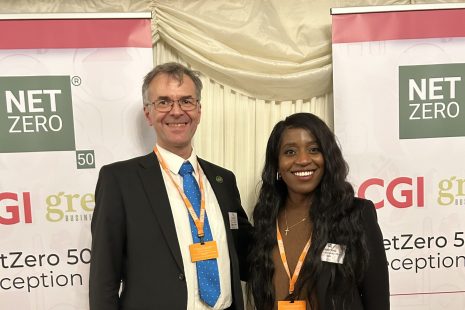
Professor Heiko Balzter named in Net Zero 50 UK 2025 List
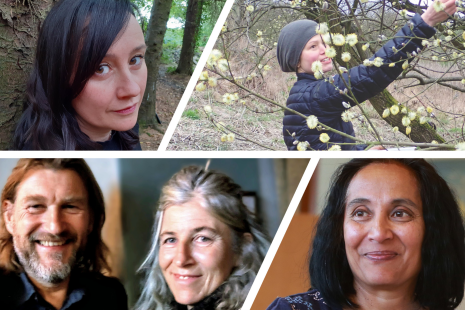
Creative Collaborative Placements project - Research Institutes Chosen Subjects of Enquiry
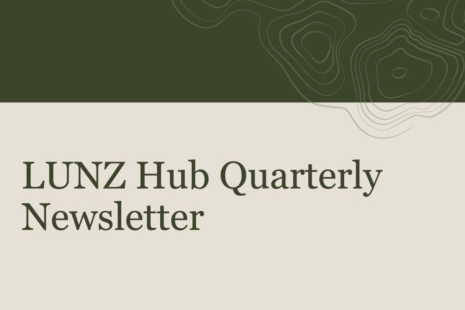
LUNZ Hub Newsletter 5: October 2025

LUNZ Hub Big Tent Event Llandudno Agenda
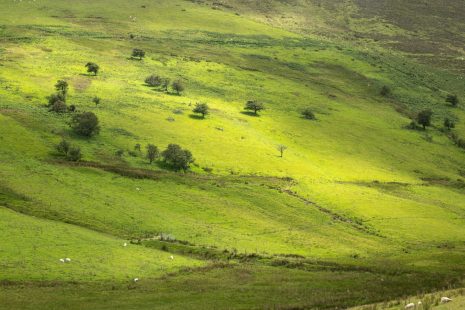
Opportunity: Creative Collaborative Placements

Heiko's CB7 Seminar Series Presentation: Landscape-scale management and decision making

Topic Advisor Professor Emily Shuckburgh CBE appointed to new Science and Technology Advisory Council

Save the Date: Within Value Chain Mitigation - how organisations can reduce their Scope 3 GHG emissions via their agricultural supply chains Workshop
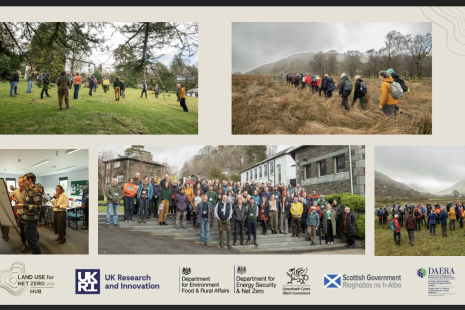
Save the Date: LUNZ Hub Big Tent Event - 18th September

LUNZ Hub Newsletter 4: June 2025
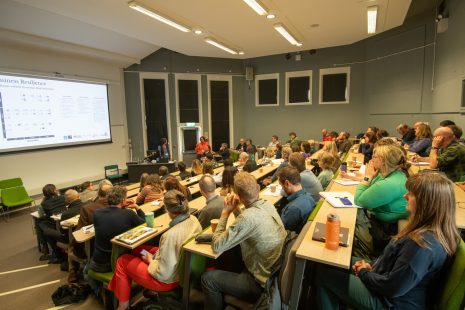
Save the Date: Nature Finance: Incentives and barriers workshop
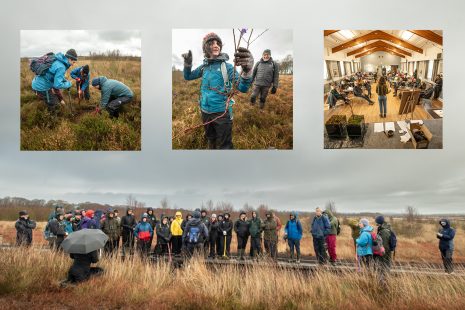
Big Dig Day Film
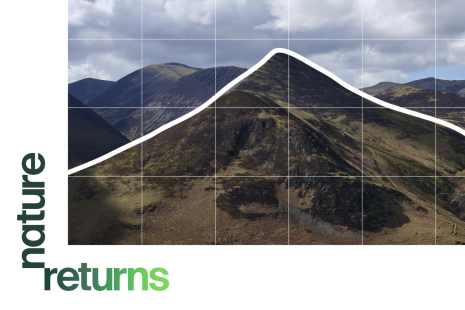
Save the Date: Nature Returns Webinar Series on Local Partnership Projects

A Landscape that Resonates: What Ullswater can teach – and learn - about land use in a protected landscape

Resonance: Uplands and Protected Landscapes Big Tent event programme announcement
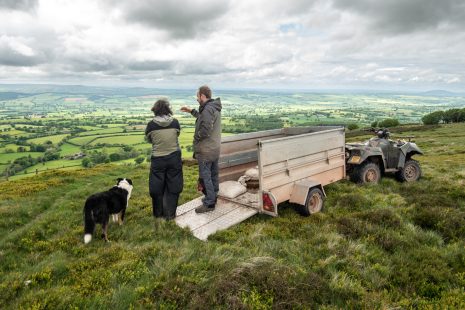
Save the Date: Scalable & auditable farm greenhouse gas accounting: an insight event
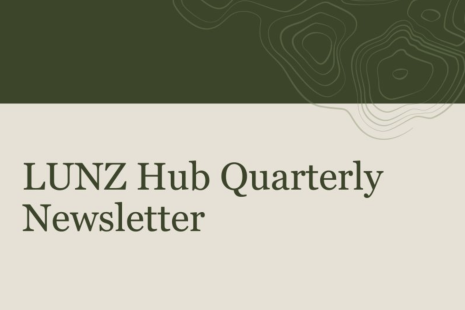
LUNZ Hub Newsletter 3: February 2025
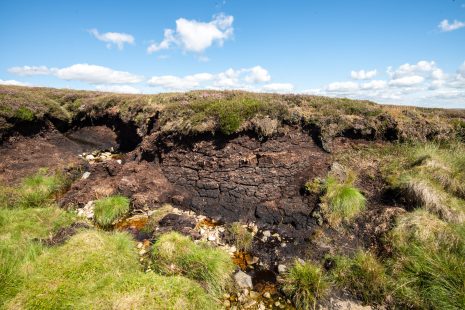
The LUNZ Hub's plans for the Land Use Framework for England Consultation

Save the date: RAU and LUNZ Hub Workshop Consultation Workshop - Where can innovation help improve the data used by land managers and policy makers?

Save the date: Resonance Tree circle plantings

Save the date: Webinar - Digital Technologies in Land-Use Net Zero

New Role: Research Associate Position in Green Finance & Land Use for Net Zero (University of Leicester)
